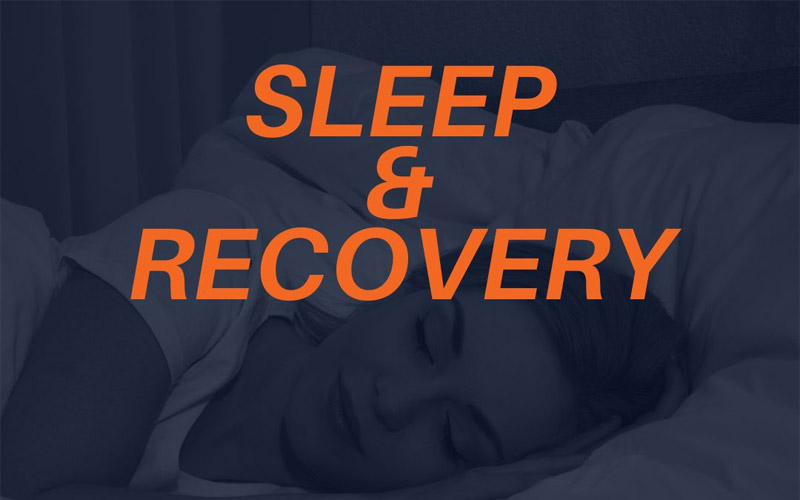Sleep Optimization for Fitness Results: The Missing Link in Your Training Program
You’ve been grinding at the gym, following your nutrition plan to the letter, yet your results have plateaued. Despite your dedication, those gains seem more elusive than ever. What if I told you the solution might not be found in another supplement or an extra set of reps, but in something you do every single night? The quality of your sleep could be the hidden factor holding back your fitness progress.
Sleep optimization represents the frontier many fitness enthusiasts overlook, yet it might be the most powerful recovery tool at your disposal. While we obsess over workout splits and macronutrient ratios, we often neglect the biological process designed specifically for repair and regeneration.
The Science Behind Sleep and Fitness Recovery

When you drift off to sleep, your body kicks into high gear at the cellular level. This isn’t downtime—it’s prime time for the physiological processes that transform your training efforts into tangible results.
During deep sleep phases, your body releases growth hormone at its highest concentrations. This hormone plays a crucial role in:
- Muscle tissue repair and growth
- Fat metabolism
- Bone density maintenance
- Immune system function
Research published in the Journal of Sports Sciences found that athletes who experience even mild sleep restriction show significant decreases in performance, slower reaction times, and reduced endurance capacity. More alarmingly, chronic sleep deprivation can elevate cortisol levels, creating a catabolic environment where your body breaks down muscle rather than building it.
“Sleep is the greatest legal performance enhancing drug that most people are neglecting,” notes sleep researcher Dr. Matthew Walker. His studies demonstrate that proper sleep optimization can improve athletic performance metrics by 10-30% across various disciplines.
Understanding Sleep Cycles for Athletic Performance
Not all sleep is created equal. Your body cycles through different sleep stages throughout the night, each serving a unique purpose in recovery:
- Light Sleep (N1 & N2): Initial stages where your body temperature drops and heart rate slows. While important, these stages contribute less to recovery than deeper phases.
- Deep Sleep (N3): This is where the magic happens for athletes. During this phase, blood flow to muscles increases, tissue growth and repair accelerates, and energy is restored. Most growth hormone release occurs here.
- REM Sleep: Crucial for cognitive processing, emotional regulation, and motor skill development—particularly important for activities requiring coordination and technical skill.
A complete sleep cycle takes approximately 90 minutes, and you need to experience multiple complete cycles to maximize recovery. This explains why a full night’s sleep (7-9 hours for most adults) is superior to fragmented or shortened sleep periods, even if the total hours seem adequate.
Creating Your Sleep Sanctuary for Maximum Recovery

Your sleep environment plays a critical role in sleep optimization. The bedroom should be treated as sacred ground for recovery—a dedicated space engineered for quality rest.
Start with these fundamental elements:
- Temperature: Keep your room cool (65-68°F/18-20°C). Your core temperature naturally drops during sleep, and a cooler environment facilitates this process.
- Darkness: Eliminate all light sources including LEDs from electronics. Consider blackout curtains if outside light intrudes. Even minimal light exposure can disrupt melatonin production.
- Sound: Either maintain complete silence or use consistent white/pink noise to mask disruptive sounds. Inconsistent noise is particularly detrimental to sleep quality.
- Comfort: Invest in quality sleep surfaces. Your mattress and pillow should support your preferred sleeping position while maintaining spinal alignment.
Athletes often overlook these environmental factors, focusing instead on supplements or recovery gadgets that promise quick fixes. However, optimizing your sleep environment offers a more sustainable and physiologically sound approach to enhancing recovery.
Sleep-Enhancing Routines for Fitness Enthusiasts
The hours before bed significantly impact sleep quality. Establishing a consistent pre-sleep routine signals to your body that it’s time to transition into recovery mode:
- Consistent Schedule: Go to bed and wake up at the same times daily, even on weekends. Your circadian rhythm thrives on consistency.
- Digital Sunset: Eliminate screen exposure 60-90 minutes before bed. The blue light emitted disrupts melatonin production and delays sleep onset.
- Wind-Down Ritual: Develop calming activities that prepare your mind for sleep—reading (non-digital), gentle stretching, or meditation.
- Temperature Regulation: A warm shower or bath 1-2 hours before bed paradoxically helps cool your core temperature as you dry off, facilitating sleep onset.
- Journaling: Write down tomorrow’s plans or concerns to prevent mental cycling through tasks while trying to sleep.
For athletes dealing with evening workouts, these routines become even more crucial. High-intensity exercise elevates core temperature and stimulates the nervous system—both counterproductive to sleep onset. Allow at least 2-3 hours between intense training and bedtime when possible.
Nutritional Strategies for Better Sleep Quality
What you eat affects how you sleep, creating either a virtuous or vicious cycle for recovery. Strategic nutritional choices can enhance sleep optimization while supporting fitness goals:
- Timing Matters: Avoid heavy meals within 2-3 hours of bedtime. Digestion requires energy and can raise core temperature, both disrupting sleep architecture.
- Strategic Carbohydrates: Moderate carbohydrate intake in the evening meal can increase tryptophan availability, which converts to serotonin and then melatonin, promoting sleep onset.
- Magnesium-Rich Foods: Green leafy vegetables, nuts, and seeds provide magnesium, which functions as a natural muscle relaxant and sleep promoter.
- Hydration Balance: Stay hydrated throughout the day but taper fluid intake in the evening to minimize sleep disruption from bathroom trips.
- Caffeine Awareness: Caffeine has a half-life of 5-7 hours in most people, but complete clearance takes even longer. For optimal sleep, avoid caffeine after noon, especially if you’re sensitive.
Many athletes are now tracking their dietary impacts on sleep quality using various technologies. AI-powered workout plans can integrate sleep data with nutrition timing to optimize both training stress and recovery periods. These systems analyze patterns most humans would miss, creating truly personalized recommendations. Learn more about how technology can enhance your training at AI-Powered Workout Plans.
Adapting Sleep to Training Intensity
Not every training day is equal, and your sleep needs should reflect your training demands. Periodizing your sleep alongside your workout program maximizes recovery efficiency:
- High-Intensity/Volume Days: Aim for 8-9+ hours of sleep following particularly demanding sessions. Consider adding a 20-30 minute nap if you’re training twice that day.
- Moderate Days: Maintain your baseline of 7-8 hours, focusing on quality rather than extending duration.
- Recovery Days: While it may seem counterintuitive, prioritize sleep quality on rest days too. This is when much of the adaptation from previous training occurs.
- Competition Periods: In the days leading up to competition, prioritize sleep even more than usual, aiming for an extra 30-60 minutes per night to ensure peak performance.
Research from Stanford University found that basketball players who extended their sleep to 10 hours per night improved sprint times, shooting accuracy, and reported better physical and mental wellbeing. Similar findings have been replicated across endurance sports, powerlifting, and high-skill activities.
Common Sleep Disruptors for the Fitness Minded
Several factors common among fitness enthusiasts can inadvertently compromise sleep quality:
- Late-Night Protein: While protein before bed can support muscle protein synthesis, very large portions may increase core temperature and digestive activity, disrupting sleep. Opt for moderate portions (20-30g) if eating close to bedtime.
- Evening Stimulants: Pre-workout supplements taken too late can devastate sleep quality. Many contain caffeine equivalent to 2-3 cups of coffee and additional stimulants with even longer half-lives.
- Overreaching/Overtraining: Excessive training volume without adequate recovery can create a state of physiological stress that disrupts normal sleep patterns. Watch for signs like early awakening or difficulty staying asleep despite feeling exhausted.
- Supplement Interactions: Some fitness supplements can affect sleep quality. For example, some fat burners contain stimulants, while certain amino acid formulations may influence neurotransmitter balance.
- Weekend Schedule Shifts: Many fitness enthusiasts maintain strict schedules during the week but dramatically shift patterns on weekends, creating a form of “social jet lag” that disrupts recovery.
The key is recognizing that sleep isn’t separate from your fitness program—it’s an integral component deserving the same attention you give to sets, reps, and macros.
Tracking and Measuring Sleep for Performance Enhancement
What gets measured gets managed. Modern sleep tracking technology provides insights that can dramatically improve your sleep optimization efforts:
- Sleep Duration: Total time asleep versus time in bed
- Sleep Efficiency: Percentage of time in bed actually spent sleeping
- Sleep Latency: How long it takes to fall asleep
- Sleep Stages: Distribution of time spent in each sleep stage
- Disruptions: Frequency and duration of awakenings
While consumer-grade sleep trackers aren’t perfect, they provide valuable trend data over time. Look for patterns rather than obsessing over nightly fluctuations. For those seeking more comprehensive wellness strategies beyond sleep, Venzec.icu offers additional resources on integrating various aspects of health for optimal performance.
Implementing Your Sleep Optimization Strategy
Start by conducting a sleep audit. For one week, track:
- Bedtime and wake time
- Estimated time to fall asleep
- Number of awakenings
- How rested you feel upon waking (scale of 1-10)
- Energy levels throughout the day
- Training performance metrics
Then implement changes methodically, starting with the most fundamental aspects:
- Establish consistent sleep and wake times
- Optimize your sleep environment
- Create a wind-down routine
- Adjust nutrition timing and content
- Align sleep duration with training demands
Unlike dramatic dietary overhauls or new training programs that promise overnight results, sleep optimization delivers cumulative benefits. The improvements in recovery, performance, body composition, and mental focus build over weeks of consistent application.
The Long Game of Sleep for Fitness Success
The relationship between sleep and fitness extends far beyond recovery from individual workouts. Chronically optimized sleep creates a physiological environment conducive to all aspects of physical development:
- Hormonal balance supporting muscle growth and fat loss
- Improved insulin sensitivity and nutrient partitioning
- Enhanced central nervous system recovery
- Better immune function reducing training interruptions
- Improved mental focus during training sessions
- Reduced injury risk through better coordination and decision-making
Many accomplished athletes attribute their longevity and sustained progress to taking sleep as seriously as their training and nutrition. They recognize that sleep optimization isn’t just about recovering from yesterday’s workout—it’s about building a foundation for years of consistent progress.
The most effective fitness programs integrate training stress, nutritional support, and recovery optimization into a unified system. Each component supports the others, creating an upward spiral of adaptation and improvement. By elevating sleep to its rightful place in your fitness priorities, you unlock a powerful lever for breaking through plateaus and achieving new levels of performance.
Your most productive hours in the gym might actually be the ones you spend with your eyes closed.










Leave a Reply